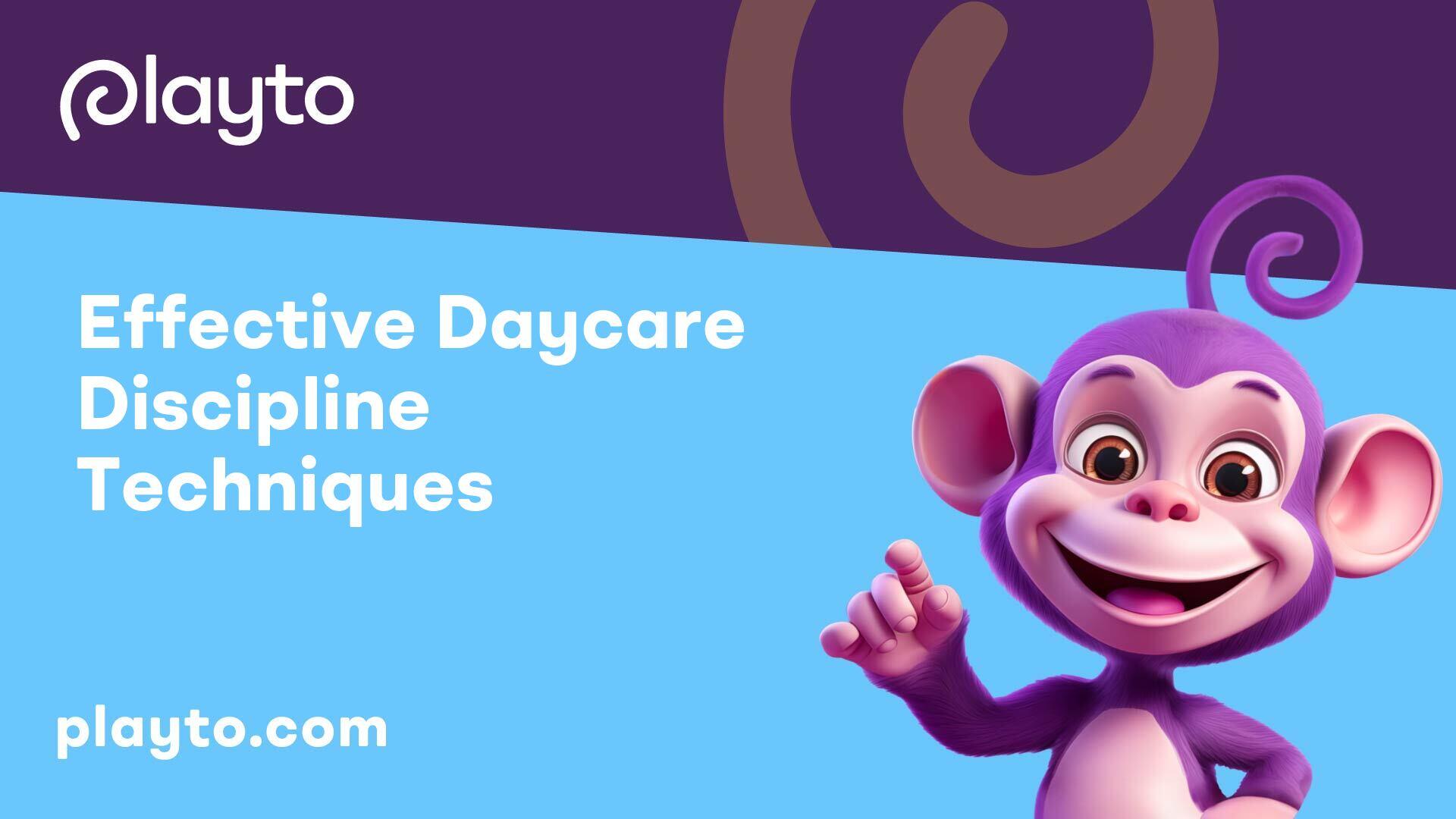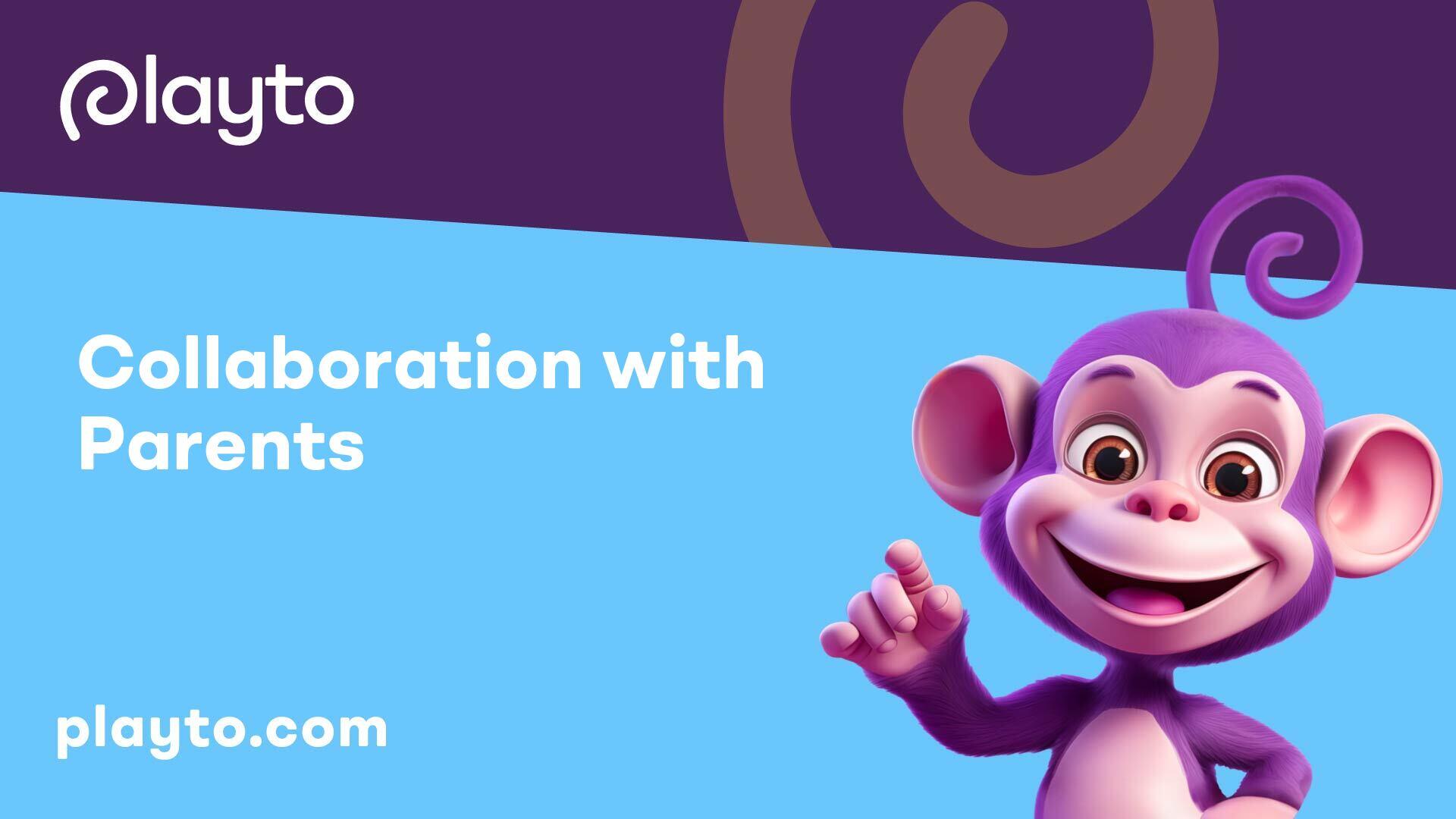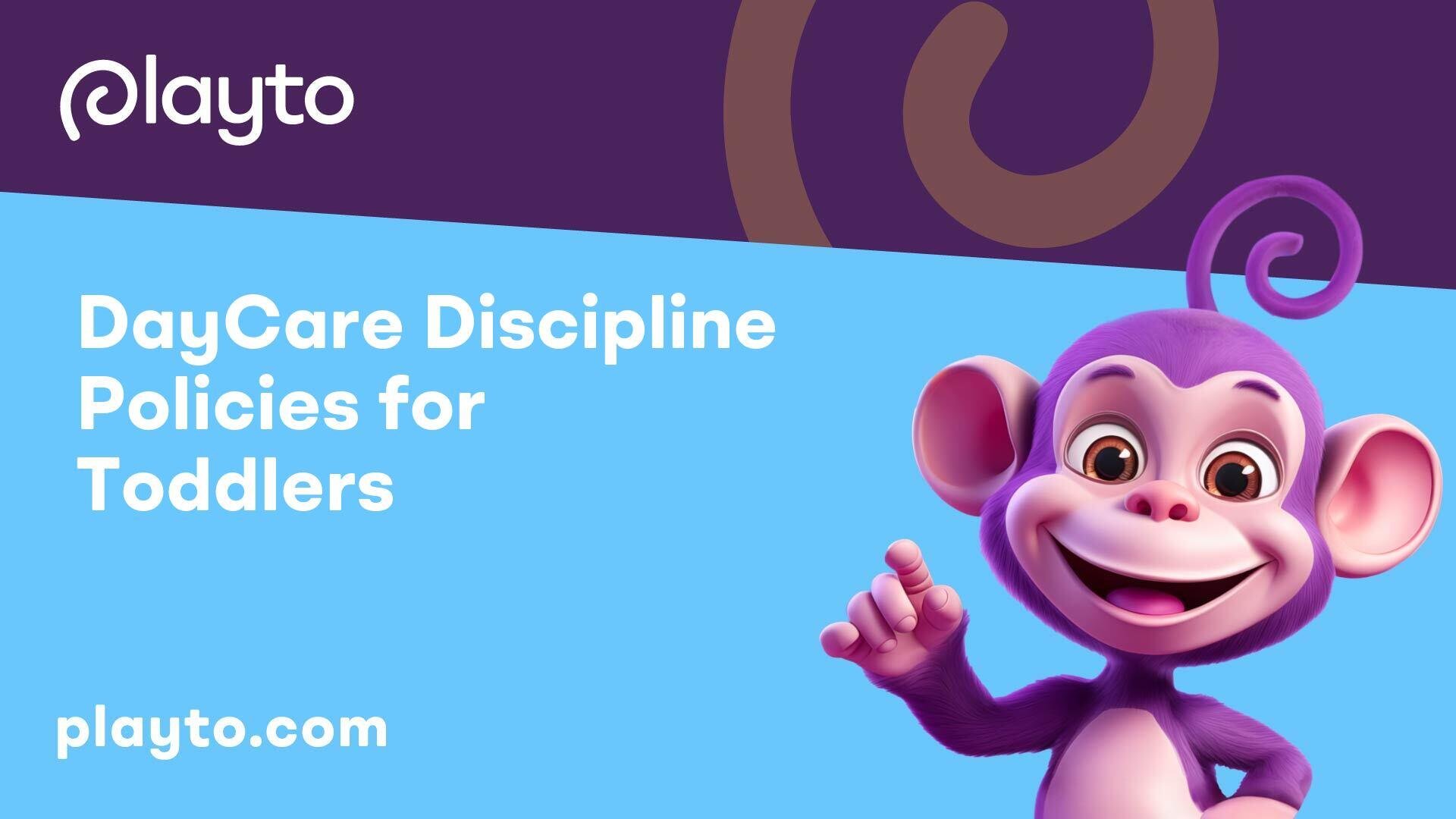
Effective Daycare Discipline Techniques
In the daycare setting, implementing effective discipline techniques is crucial for maintaining a safe and nurturing environment for toddlers. This section delves into behavior management strategies and positive reinforcement practices that childcare providers utilize to guide children's behavior appropriately and positively.
Behavior Management Strategies
Child care providers are tasked with the important responsibility of shaping children's behavior in a positive and constructive manner. According to the eXtension Alliance for Better Child Care, behavior management strategies are essential for encouraging positive behavior, preventing misbehavior, and effectively addressing challenging behaviors in daycare settings.
It is imperative for childcare providers to establish clear behavioral expectations and rules, communicate them effectively to the children, and consistently enforce them. By creating a structured and predictable environment, children are more likely to understand boundaries and expectations, leading to improved behavior.
Positive Reinforcement Practices
In daycare settings, positive reinforcement is a powerful tool used to encourage and reinforce desirable behaviors in toddlers. Child care providers rely on creative strategies to manage and redirect children who may not always comply with the rules. Positive reinforcement involves acknowledging and rewarding good behavior, which helps children understand the consequences of their actions and motivates them to continue exhibiting positive behaviors.
By offering praise, encouragement, and rewards for following the rules and exhibiting good behavior, childcare providers can foster a positive and supportive atmosphere in the daycare center. Redirecting children's behavior towards more appropriate actions and providing alternative activities are effective ways to guide children back on track when facing challenges.
Utilizing positive reinforcement practices not only helps in shaping children's behavior but also strengthens their self-esteem and confidence. By emphasizing and celebrating positive behaviors, childcare providers can create a nurturing environment that promotes healthy social and emotional development in toddlers.
When implementing daycare discipline techniques, combining behavior management strategies with positive reinforcement practices plays a pivotal role in guiding children towards positive behavior and creating a harmonious and enriching daycare experience for both children and caregivers.

Collaboration with Parents
When it comes to implementing daycare discipline policies for toddlers, fostering open communication channels between daycare providers and parents plays a pivotal role in ensuring a supportive and harmonious environment for the little ones. This collaboration not only enhances the effectiveness of behavior management strategies but also strengthens the overall daycare experience for the children.
Open Communication Channels
Maintaining open and honest communication with parents is crucial in managing challenging behaviors exhibited by toddlers at daycare. By ensuring that parents are informed about their child's behavior patterns, educators can work collaboratively with them to identify solutions and exchange insights on effective techniques for behavior management. This transparency builds trust and empowers parents to be active partners in their child's development journey.
Parent Involvement Benefits
Engaging parents in the daycare setting through shared goals, clear expectations, and a problem-solving approach is fundamental in creating a positive learning environment for toddlers. Collaborating with parents not only benefits the holistic development and well-being of the children but also enriches the daycare experience for both families and educators [2].
Key Benefits of Parent Involvement:
BenefitDescriptionEnhanced UnderstandingParents gain valuable insights into their child's needs, preferences, and family dynamics.Improved CommunicationFacilitates the sharing of information about a child's progress, accomplishments, and challenges.Holistic DevelopmentSupports children's well-being and development by fostering a collaborative partnership.
By establishing effective communication channels and promoting parent involvement, daycare providers can create a nurturing and inclusive environment where toddlers can thrive and grow. This collaborative approach not only benefits the children but also strengthens the bond between parents and educators, fostering a supportive network for the well-being of all involved [3].

Handling Challenging Behaviors
In daycare settings, managing challenging behaviors in toddlers requires a thoughtful approach that balances discipline with understanding. By implementing effective daycare discipline policies for toddlers, caregivers can promote a positive environment and guide children towards appropriate behavior. Two key aspects of handling challenging behaviors are prevention strategies and redirecting misbehavior.
Prevention Strategies
Effective daycare discipline policies focus on prevention strategies to minimize the occurrence of challenging behaviors. By identifying potential triggers and implementing proactive measures, caregivers can create a supportive environment that encourages positive behavior. Some common prevention strategies include:
By proactively addressing potential challenges and promoting a supportive atmosphere, daycare providers can create a nurturing environment that fosters positive behavior and minimizes disruptive incidents.
Redirecting Misbehavior
When challenging behaviors do arise, redirecting misbehavior in a calm and constructive manner is essential. Disciplinary actions should be handled with care to avoid humiliation or embarrassment to the child. Some effective strategies for redirecting misbehavior include:
It is crucial for daycare providers to address challenging behaviors promptly and consistently, using positive reinforcement and redirection techniques to help children understand and adhere to the daycare's behavioral expectations. Harsh discipline practices, physical punishment, or shaming should never be part of daycare discipline efforts.
By establishing clear guidelines, fostering a positive learning environment, and employing effective prevention and redirection strategies, daycare providers can create a supportive and nurturing space for toddlers to learn and grow. Collaborating with parents and maintaining open communication channels can further enhance the effectiveness of daycare discipline policies and promote positive behavior among young children.
Addressing Specific Issues
When it comes to daycare discipline, addressing specific behavioral issues is crucial for maintaining a safe and harmonious environment for all children. Two common challenges that daycare providers encounter are biting incidents and dealing with hitting and toy-throwing behaviors.
Biting Incidents Management
Biting is often considered one of the most challenging issues faced by daycare providers. To effectively manage biting incidents, it's important to implement strategies that focus on addressing the root causes of the behavior. One approach is to support the child's emerging language skills to help them communicate their needs and emotions effectively.
Ensuring that children receive adequate rest and are not overly tired can also help reduce the likelihood of biting incidents. Additionally, positive reinforcement for good behavior can be a powerful tool in discouraging negative behaviors like biting. By praising and rewarding children for using positive communication and problem-solving skills, daycare providers can create a supportive and encouraging environment.
For more insights on daycare discipline policies and what to expect, visit our article on understanding daycare enrollment policies.
Dealing with Hitting and Toy-throwing
When children exhibit behaviors such as hitting other children or throwing toys, it is essential to address these actions promptly and professionally. Reacting out of anger or frustration is not effective and can instill fear in the child, leading to further behavioral challenges. Maintaining a calm and firm demeanor is key to establishing discipline in a daycare setting.
Consistency in enforcing rules and consequences is crucial when dealing with hitting and toy-throwing behaviors. By setting clear expectations and boundaries, children learn the importance of respectful interactions and appropriate behavior. Positive reinforcement for following rules and using problem-solving skills can also reinforce positive behavior and deter negative actions.
To explore more on how daycare providers manage various behavior challenges, read our article on key daycare policies every parent should know.
By addressing specific issues like biting incidents and dealing with hitting and toy-throwing behaviors with patience, understanding, and clear communication, daycare providers can create a supportive and nurturing environment where children can learn and grow positively.
Establishing Clear Policies
When it comes to daycare discipline policies for toddlers, it is crucial to have clear guidelines in place to ensure a positive and structured environment. Establishing clear policies involves setting behavioral expectations and implementing effective rule enforcement methods.
Setting Behavioral Expectations
In daycare settings, setting clear behavioral expectations for toddlers is essential for promoting positive behavior and preventing challenging incidents. By clearly defining what behavior is acceptable and what is not, children can understand the boundaries within which they are expected to interact with their peers and caregivers.
One effective approach, as suggested by Playto, includes creating visual aids like classroom reward charts and visual schedules to reinforce positive behaviors and help children understand expectations. Incorporating positive language, praising good behavior, and using redirection techniques can also be valuable tools in guiding toddlers towards appropriate conduct.
By establishing consistent and age-appropriate guidelines for behavior, daycare providers can create a supportive environment that fosters positive interactions and social development among toddlers. It's important to ensure that these expectations are communicated clearly to both children and parents to maintain consistency and reinforce positive behavior.
Rule Enforcement Methods
Effective rule enforcement methods play a pivotal role in upholding daycare discipline policies for toddlers. It is essential to implement strategies that address rule-breaking behavior in a respectful and constructive manner. According to Universal Class, discipline should never cause humiliation to the child, and incidents should be handled in a private setting to avoid embarrassment.
Positive reinforcement techniques, such as acknowledging and rewarding positive behavior, can serve as powerful motivators for children to exhibit the desired conduct. By highlighting and praising good behavior, daycare providers can reinforce positive actions and encourage children to continue making positive choices.
In cases where rule-breaking behavior occurs, addressing the issue privately, providing redirection techniques, and having clear consequences for continued infractions are integral to maintaining a structured environment. It is important to remember that discipline in daycare settings should always focus on maintaining a positive and respectful atmosphere, steering clear of physical punishment, harsh language, shame, or degradation.
By establishing clear policies that outline behavioral expectations and implementing effective rule enforcement methods with a focus on positive reinforcement, daycare providers can create a nurturing and supportive environment that promotes the social, emotional, and behavioral development of toddlers in their care.
Importance of Consistent Discipline
Consistency in discipline plays a pivotal role in shaping a positive and nurturing environment within daycare settings. By upholding consistent discipline policies, daycare centers can create a safe and structured space for toddlers to learn and grow. This section delves into the significance of maintaining a positive environment and the avoidance of harsh discipline practices.
Maintaining a Positive Environment
Ensuring a positive environment within a daycare facility is essential for the emotional well-being and development of toddlers. Positive environments promote healthy relationships, encourage positive behavior, and foster a sense of belonging among children. Maintaining positivity involves using creative strategies to manage and redirect children in a constructive manner. It is important to emphasize respect, patience, and encouragement in all interactions with the children.
Consistent reinforcement of positive behavior through verbal praise, stickers, or small rewards helps children understand expectations and reinforces desired actions. By focusing on positivity and encouragement, daycare centers can create a supportive atmosphere where toddlers feel valued and motivated to engage in positive behaviors.
Avoiding Harsh Discipline Practices
In the realm of daycare discipline, it is crucial to steer clear of harsh and punitive practices that can have detrimental effects on a child's emotional well-being. Harsh discipline practices, such as physical punishment, harsh language, shame, or degradation, are not conducive to a nurturing daycare environment. Instead, discipline strategies should prioritize teaching and guiding children towards positive behavior through understanding and communication.
By avoiding harsh discipline practices and opting for positive reinforcement techniques, daycare providers can foster a sense of security and trust among toddlers. Discipline should focus on constructive methods of addressing misbehavior, such as setting clear expectations, offering redirection techniques, and implementing consistent consequences when rules are broken. This approach helps children understand boundaries, learn from their actions, and develop essential social and emotional skills.
By adhering to consistent discipline practices that prioritize positivity and respect, daycare centers can create an environment where toddlers feel supported, valued, and empowered to thrive. The foundation of a positive daycare experience lies in the cultivation of a nurturing space where discipline is guided by understanding, empathy, and the promotion of positive behavior.
Incident Reporting and Communication
When it comes to maintaining a safe and transparent environment in daycare settings, effective incident reporting and communication protocols play a crucial role. This section focuses on the significance of daycare discipline policies for toddlers and how transparency with parents and implementing reporting processes can enhance the overall childcare experience.
Transparency with Parents
Open and transparent communication with parents is essential when addressing incidents involving their children. According to Universal Class, parents should be informed about their child's negative behaviors. By involving parents in discussions to determine the underlying causes of such behaviors, daycare providers can work collaboratively with families to address and modify negative behaviors effectively.
When communicating with parents about incidents, it is crucial to maintain a serious, sincere, and honest approach. Parents should feel reassured that the daycare facility acknowledges the issue and is taking steps to support their children. Clear and transparent communication fosters trust and understanding between parents and caregivers, ensuring that everyone is on the same page when it comes to resolving behavioral issues.
Implementing Reporting Processes
An effective incident reporting process is a cornerstone of any daycare discipline policy. By implementing streamlined reporting processes, childcare facilities can ensure that incidents are documented, addressed, and communicated effectively to parents. Solutions like EZChildTrack, as highlighted by EZChildTrack, offer features that simplify incident reporting and enhance parent communication in childcare facilities.
This integrated childcare management solution allows for communication through various channels such as the parent portal, email, text, and phone. By aggregating data and tracking trends, childcare providers can identify recurring issues, address concerns promptly, and maintain compliance with state regulations. The transition to online reporting systems for childcare facilities and schools aligns with state regulations and helps streamline the reporting process, reducing paperwork and ensuring efficient incident management.
In alignment with state regulations, incident reporting processes should be part of the daycare's overall policies and be easily accessible to parents through the parent portal or the school's website. Clear guidelines and practices ensure that all stakeholders are aware of the procedures for reporting and handling incidents, promoting a safe and secure environment for toddlers in daycare settings.
By prioritizing transparency with parents and implementing robust reporting processes, childcare facilities can enhance trust, communication, and accountability within the daycare community. Effective incident reporting and communication practices not only benefit children and parents but also contribute to the overall wellness and positive outcomes for all involved.
Child Development Insights
Exploring the realm of child development provides valuable insights into toddlers' cognitive growth and their capacity to learn and interact with their environment. Here, we delve into cognitive development findings and the importance of learning from others' actions in shaping a child's mental growth.
Cognitive Development Findings
Studies on infant cognitive development shed light on the early cognitive abilities displayed by babies, highlighting their innate curiosity and receptiveness to learning. Infants engage in intuitive analysis of speech sounds and start forming implicit theories to understand the actions of objects and people, which serves as the foundation for causal learning.
Furthermore, infants demonstrate a remarkable responsiveness to learning from others through joint attention, a crucial developmental milestone that enables them to acquire knowledge from their cultural environment. This phenomenon showcases toddlers' ability to comprehend and internalize information gained through shared experiences and interactions with caregivers and peers.
Learning from Others' Actions
A significant aspect of cognitive development in toddlers is their propensity to learn by observing and imitating others' actions. As early as 14 to 18 months, children display the ability to imitate actions based on perceived intentions, focusing on the underlying goal or rationale behind the action rather than simply mimicking the physical movements they observe. This form of intentional imitation reflects toddlers' cognitive development and their emerging understanding of the mental states of others [5].
Moreover, toddlers exhibit sensitivity to social cues and teaching cues, showcasing their capacity to recognize when someone is conveying information for their benefit. For instance, infants are adept at discerning interactive social cues that facilitate their learning process, such as responding better to live video chats with engaging cues compared to non-interactive pre-recorded videos. This sensitivity to social interactions underscores the role of social engagement in shaping toddlers' cognitive abilities and learning experiences.
By understanding and appreciating these cognitive development findings, caregivers and educators can create enriched environments that support toddlers' mental growth and foster their cognitive skills. Encouraging opportunities for observational learning, providing engaging social interactions, and promoting interactive learning experiences can significantly contribute to toddlers' cognitive development and overall learning outcomes.
References
[2]:
[3]:
[4]:
[5]:
